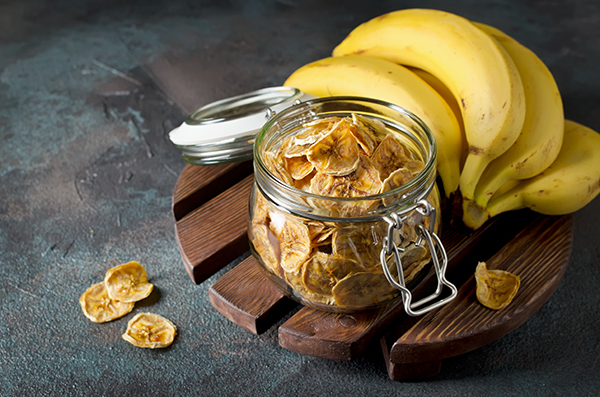
There is one silver lining: This near-extinct banana tree is resistant to the Panama disease that typically afflicts the world’s edible banana crop. Found only in Madagascar, there are only five mature trees left in the wild, and they are isolated on the island’s western region. Scientists believe this wild banana tree contains the genetics that could save the world’s edible banana crop. If these remaining Madagascan banana trees are not conserved, then the world’s entire edible crop of bananas could be prone to pestilence, rationing, and potential extinction.
The world relies on the iconic Cavendish banana crop, but crop yields of this tasty fruit continue to struggle. As this popular fruit continues to struggle against Panama disease, scientists are looking for ways to use disease-resistant traits to preserve crop yields for the future. Disease spreads quickly from one banana plant to the next because the plants are identical clones to one another. Panama disease takes advantage of this fact and spreads rapidly among banana crops. This disease is currently affecting bananas in Asia but has yet to make its way to the Americas. If it does, there could be severe banana shortages in the future.
This problem isn’t new. In the 1950s, the world mostly consumed a type of banana called the Gros Michel. A fungal outbreak linked to Panama disease threatened the Gros Michel in the 1950s, but thanks to the successful propagation of a new banana type, the world’s banana crop recovered and thrived in the face of disease. Today’s Cavendish banana crop was derived from this important moment in history... A banana specimen imported from Mauritius flourished at the Chatsworth House in Derbyshire. Head gardener Joseph Paxton propagated the species in the 1930s, and the tasty variety slowly became popular around the world as the Gros Michel faced the perils of disease.
Today, research shows that bananas are important for both digestive and heart health. Their magnesium content regulates the heartbeat and their potassium level helps lower blood pressure. Banana fibers soothe the digestive system and help satiate hunger; they are often used as appetite suppressants. Bananas also boost mood because they contain the amino acid tryptophan.
Wild Madagascan banana may hold the genetic key to preserve future banana crops
Because the Madagascan banana is isolated on an island, it has evolved special properties that make it less susceptible to disease. Scientists would like to use these resilient genes in order to create a more resilient Cavendish banana crop. Richard Allen, senior conservation assessor at the Royal Botanic Gardens, says the Madagascan species never gets Panama disease so it must have genetic traits that protect it against disease and/or drought. These built-in traits could be researched and incorporated into the iconic Cavendish banana crop to save the fruit from future crop losses.
As it is, the Madagascan banana is not a palatable fruit because it contains large seeds inside the fruit. A successful cross-breeding of the Madagascan species and the Cavendish banana could result in a more resilient, yet palatable hybrid. The Madagascan banana has disappeared, not from disease, but because of fires, logging operations, and forest clearing for farming operations. The remaining trees may hold the genetic keys for the survival of all bananas.
For more on conservation and saving important crops, visit FoodCollapse.com.
Sources include:
Please contact us for more information.






















